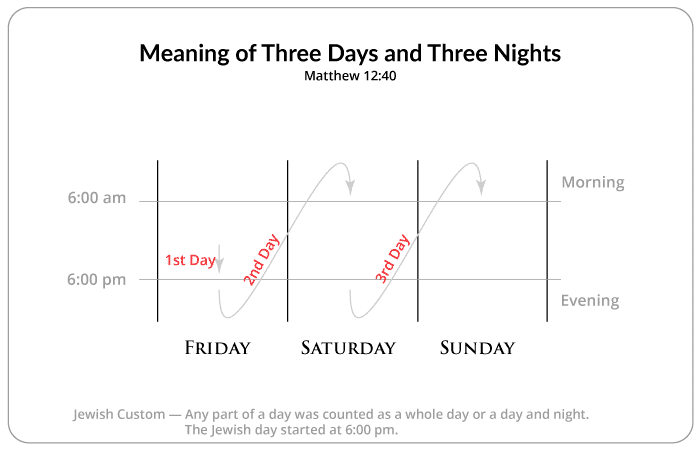Have you ever wondered what significance “3 days” holds in the Bible? In this blog post, we will explore the profound meaning and implications of the concept of “3 days” as depicted throughout scripture. Delve into the rich symbolism and spiritual lessons that can be gleaned from this time frame, and discover how understanding the significance of “3 days” can deepen your faith and appreciation for God’s divine plan.
By unpacking the theme of “3 days” in the Bible, you will gain a deeper insight into the miraculous events, prophetic foreshadowing, and redemptive power woven throughout scripture. Through this exploration, you will not only enhance your knowledge of the Bible but also strengthen your connection to the Word of God and experience a renewed sense of awe and wonder at the mysteries contained within its pages. Join us on this journey of discovery as we uncover the transformative power of “3 days” in the Bible and uncover the hidden gems waiting to be explored.
Unlocking the Significance of 3 Days in the Bible: A Deep Dive into Biblical Timeframes
3 Days in the Bible Means
In the Bible, the significance of three days holds deep spiritual and symbolic meaning that is seen throughout scripture. This number is often associated with themes of completeness, transformation, and restoration. Let’s explore some key instances where “three days” carry significant importance in the Bible.
1. The story of Jonah:
One of the most well-known accounts involving three days in the Bible is the story of Jonah and the whale. After Jonah disobeys God and attempts to flee, he is swallowed by a great fish and remains in its belly for three days and three nights. During this time, Jonah realizes the error of his ways, repents, and prays for deliverance. On the third day, he is miraculously spewed out onto dry land, symbolizing his redemption and the power of God’s mercy.
2. The resurrection of Jesus:
Perhaps the most profound instance of three days in the Bible is the resurrection of Jesus Christ. After being crucified and buried, Jesus rises from the dead on the third day, fulfilling the prophecy and demonstrating his victory over sin and death. His resurrection not only signifies His divine nature but also serves as the foundation of Christianity, offering believers hope, salvation, and eternal life through faith in Him.
3. The foreshadowing of Christ’s death and resurrection:
Throughout the Old Testament, there are foreshadowings of Christ’s death and resurrection that involve three days. For example, in Genesis 22, Abraham is instructed to sacrifice his son Isaac, and on the third day, God provides a ram as a substitute, prefiguring the ultimate sacrifice of Jesus on the cross. Similarly, when the Israelites journey through the wilderness, they are instructed to purify themselves for three days before encountering God at Mount Sinai, emphasizing the need for spiritual preparation and consecration.
Overall, the concept of three days in the Bible underscores themes of renewal, transformation, and divine intervention. Whether through historical events, prophetic symbols, or spiritual truths, the significance of three days serves as a powerful reminder of God’s redemptive plan and the promise of new life in Him.
What is the significance of Day 3?
Day 3 in the context of the Bible holds significant importance as it marks the creation of dry land and vegetation according to the Book of Genesis. On this day, God commands, “Let the water under the sky be gathered to one place, and let dry ground appear.” (Genesis 1:9) This act of separating the water from the land is seen as a foundational step in the creation narrative.
Additionally, on Day 3, God creates vegetation by commanding the earth to produce plants, trees, and fruit-bearing seeds. This day symbolizes God’s provision for sustaining life on Earth and sets the stage for the development of ecosystems and food sources for all living creatures.
In a broader sense, Day 3 represents order, growth, and fertility in the biblical creation story. It highlights God’s power to bring forth life and abundance from the earth, demonstrating His role as the ultimate Creator and sustainer of the world.
What does <3 signify in the Bible?
In the Bible, the symbol <3 does not have a specific significance or meaning. It is actually a modern emoticon representing a heart shape, commonly used to express love, affection, or gratitude in online communication. However, it is important to note that symbols like <3 are not mentioned in the Bible itself as they are a product of contemporary digital language and communication. The Bible primarily uses words and phrases to convey its messages and teachings.
What does the number 3 mean in Hebrew?
In the context of the Bible, the number 3 holds symbolic significance in Hebrew culture. It is often associated with divine perfection, completeness, and wholeness. For example, in the Bible, Jesus rose from the dead on the third day, which signifies victory over death and fulfillment of prophecy. The number 3 can also represent the Holy Trinity in Christian belief – the Father, the Son, and the Holy Spirit. Overall, the number 3 in Hebrew conveys a sense of powerful divine presence and ultimate purpose.
What does three days and three nights in the heart of the earth mean?
In the context of the Bible, the phrase “three days and three nights in the heart of the earth” refers to the time that Jesus Christ spent in the tomb after his crucifixion. This phrase is often referenced in connection to Jesus’ prediction of his own resurrection. According to the Gospels, Jesus was crucified on a Friday (Good Friday) and rose from the dead on the third day, which is Sunday (Easter Sunday).
The phrase emphasizes the fulfillment of Jesus’ prophecy that he would be buried for three days and three nights before rising again. This period of time is significant in Christian belief as it signifies Jesus’ victory over death and the fulfillment of God’s plan for salvation.

